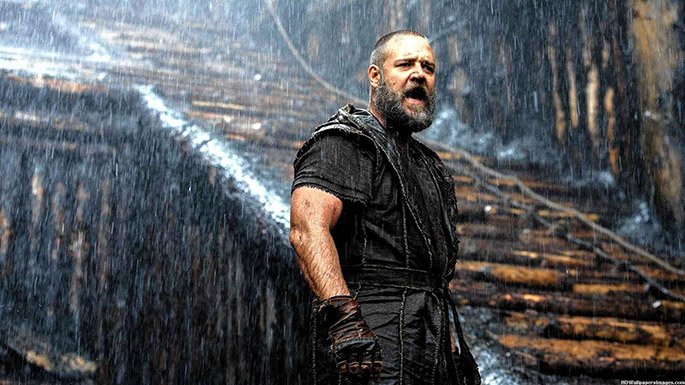For those who are aware of Darren Aronofsky’s work, the content we are most familiar with is that of intense drama, presented with no small dose of surrealism. So from the director who gave us soul-wrenching movies like Requiem For A Dream amongst others, this move into the outmoded genre of the biblical epic certainly seems out of place.

Granted, the story of one man’s mammoth task of preserving and repopulating the species of the entire planet leaves a lot of room to explore the scale of dramatic potential. Aronofsky’s track record is proven to successfully capture the essence of the human soul and present his vision in compelling clarity. But Noah falls disappointingly off that mark. The film plays out as a strange amalgamation of an action epic and family drama with enough artistic license taken to spark the usual controversy that follows any film tackling religious matter.
For example, the original story as told in the Bible, clearly states that Noah, his wife, sons and his sons’ wives were on the Ark and subsequently spared. 150 days later, when the floods subside and man and beast are once more free to roam the earth, the command “go forth and multiply” is given to these four couples. For presumably dramatic effect however, Aronofsky has glaringly overlooked that detail and has Noah’s family board the Ark with only one additional woman, Ila, who is claimed by the eldest son Shem. Cue the inevitable envy of second son Ham, who up to this point has also been seen to question Noah’s righteous motives. The dramatic tension is mostly focused on Noah’s struggle with placing his faith before his family and on his rocky relationship with Ham. The rest of the characters are torn between defiance of and respect towards his patriarchal authority but whereas the director could have delved deeper into their individual conflicts, it feels like he simply skims over their emotions just enough to develop the plot. Any biblical opus also comes with a certain amount of audience preconception and to be fair, Noah does not fail to fulfil these. Expect grand scale landscapes and battles (yes, there are even obligatory villains), cryptic words of wisdom, visions, miracles and of course spectacular floods.
Interestingly though, the film merges theological and evolutionary theory without becoming a statement of either viewpoint. The word God is never spoken and in its place the more open to interpretation “Creator” is used while wherever expositional backstory is needed, evolutional visuals accompany biblical narration. Clever or brave, this remains to be seen – the film has already been banned in several Muslim countries due to its depiction of a prophet and has provoked fury from Christian groups due to its lack of a more religious content. But let’s not forget, this is one man’s interpretation of a story, never claiming to be an accurate illustration of biblical facts. When I watched Noah, I had reservations about what to expect and admittedly it is not a film that fits neatly into Aronofsky’s repertoir but that aside and as long as you are not looking for enlightenment of any sort, it is a gratifying action film that will sweep you away for a couple of hours of entertainment.

